We received a rather interesting question from a reader recently that frankly left us at a loss. This one isn’t about birds but rather birders, one in particular. Whenever we’re stumped by a worthy query, we rely on your wisdom so here’s a significantly redacted version of the initial inquiry, edited to obscure sensitive information:
Hello! I have just finished reading “To See Every Bird on Earth”…I really enjoyed it and am beginning to amass my own Life List and can only hope one day I can begin to approach the status of “Big Lister”.
As I was reading, I thought I recognized the name of XXX, another “Big Lister” who accompanied Dan & Richard Koeppel on a trip. The reason this name rang a bell with me was from a phone call I had received from a man identified himself as the neighbor of XXX and informed me that he had died recently.
So I am presented with this “mystery”. XXX had died somewhere around 90 years old. He had never married or had children according to his neighbor. XXX was an avid birder who had traveled the world and had quite a collection of bird-related stuff. All of the records and photos of a “Big Lister” remain locked up without anyone to claim them.
My question to you is…do you know of any organization that would be interested in his bird stuff? Is there a “Birding Hall of Fame”? Is there somewhere we can look up Big Listers of the past?
To reiterate, does any organized body collect, curate, or utilize the amassed artifacts of a life of big listing? Apparently, the individual in question here had an enormous life list. Is the ABA, Cornell Lab of Ornithology, or any other organization remotely interested in the effects and records of an accomplished international birder?


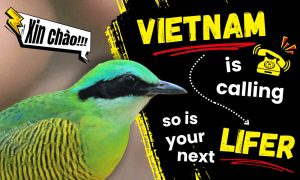

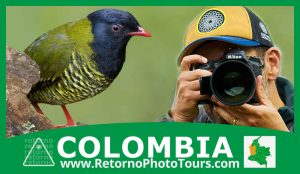



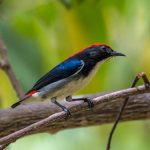
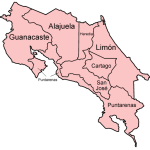
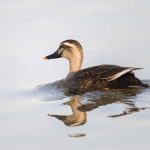
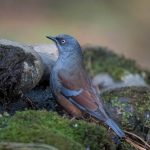
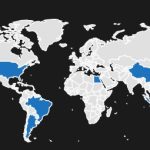
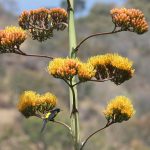
When I ran eBird my office became a repository of sorts as I accepted offers like this regularly. Over the years we have had volunteers enter the data into eBird, as long as the records contained a species, a location, and a date.
Please contact me directly, I’d love to hear the details about the lists and see if I can help get the records into the realm of citizen science.
On a broader note, this is the brilliance of projects like eBird, where that mass of data become more than just ‘ticks’ on a list. Those observations are useful on many levels to a diverse group of people.
BTW, regarding a recent post of yours with a meager checklist: those are valuable, too! No matter how meager, eBird it!
🙂
Cheers,
Mike
Great site you have here! I’m learning a lot! I have a blog as well, one that offers inspiration and wisdom. I was wondering if we could exchange links, let me know what you think!
Jason
This is interesting and I think an official “archive” for the competitive big listers should be established.
Take a look at Phoebe Snetzinger’s list: no one was able to update it after her untimely and tragic death and now we don’t know exactly how many bird species she was able to gather on her life list (as far as I know). And with bird taxonomy ever changing, these lists have to be updated for as long as there is competitive world birding if future generations want to be entirely sure where they currently are on their quest to becoming the “best” birder ever.
Of course, when humanity runs out of fossile energy in a couple of decades, this will also mark the end of world birding as we know it.
Noflickster has a great spot for the list information of this big birder, but I’m sure there’s lots of other stuff that will also need a home–bird books, binoculars, scope, perhaps photos, and who knows what else. I’d suggest finding a school, college or local nature center for the binoculars and scope. I’m sure they could put them to good use.
Depending on the quality and size of the birder’s library, I’d recommend something similar–local library, college library, school–someplace where the books will be used and not just sit on a shelf or be culled out in a few years.
Photos or other souveneirs should also find a nice home and they might be the most difficult–local historical society?? Perhaps what birders need is our own, nation-wide birder’s historical society for things like that. It would be a shame to lose all this information that many of us have collected throughout our lifetimes.
Carolyn H.
The optics, field guides and other gear would do more good if donated to the Birders Exchange program with the American Birding Association. That way, conservation workers and eco-tourism outfits in Latin American countries can put them to good use. They are much harder off for funding for such things than schools, colleges or nature centers in the U.S.
Why not make a birder’s Hall of Fame (or something like that) online? eBird’s “Top 100” is a step in that direction already…
The ironic thing about competitive bird lists is that, by definition, they contain almost zero information. A serious lister would never seek a species where it was unexpected. The listing focus is all about placing oneself in the very best (or at least best known) places to encounter each species, so that the records produced (species/location/date combinations) are deliberately rendered as uninteresting as humanly possible to anyone but the lister him/herself. This is not to say that listers don’t need skill to encounter and identify the species they seek, each within its own expected context. The skill required is immense–but it is almost completely narcissistic. I use the qualifier “almost” here because, of course, listers encounter non-target species during their field work, and some make an effort to record these extra observations. But, as many have noted, “chance favors the prepared mind”–and listers are by intention unprepared to predict, seek, observe, document, and disseminate unexpected bird records.